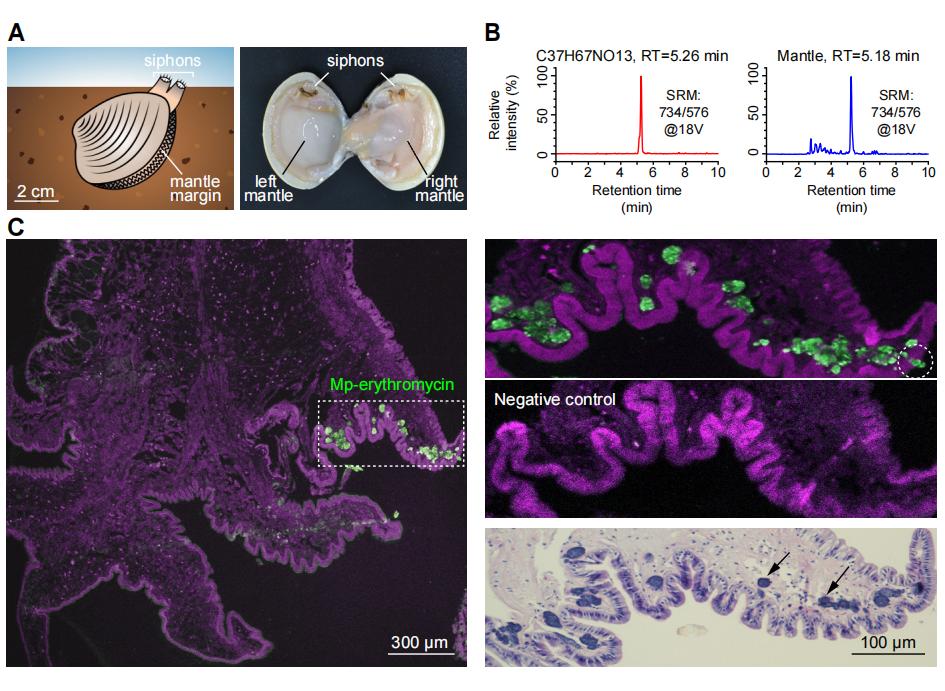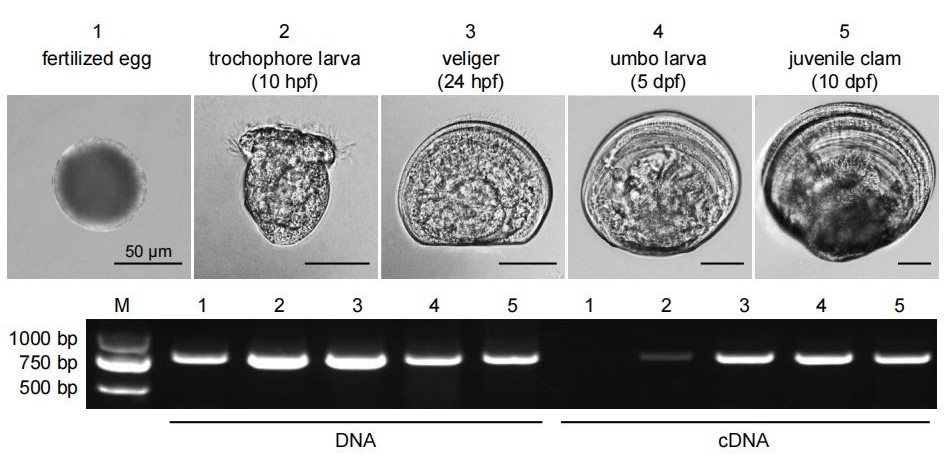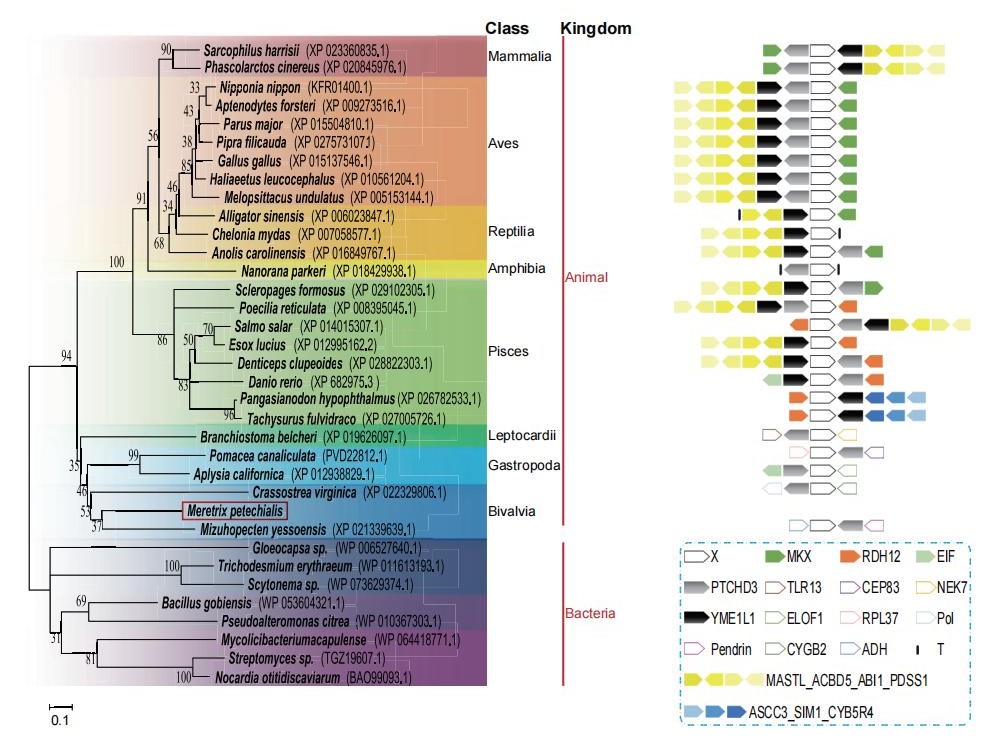The clams and other invertebrates often live in habitats with dense bacterial populations, despite lacking adaptive, lymphocyte-based immune systems. How clams resist bacterial pathogens in the environment is unclear.
Recently, the research team led by Prof. LIU Baozhong from the Institute of Oceanology of the Chinese Academy of Sciences (IOCAS) and co-researchers from Carnegie Institution for Science first reported the secretion of a potent antibiotic by mud-dwelling clams.
The study was published in PNAS on Nov. 29.
Researchers found Asiatic hard clam, Meretrix petechialis, which lives in mud flat environment can synthesize, store, and secrete the antibiotic erythromycin. First, liquid chromatography, mass spectrometry, and immunocytochemistry were used to determine that erythromycin was secreted in the protective, outer mantle tissue of M. petechialis. Next, staining and electron microscopy were used to characterize the specialized mucous cells in the mantle which produced and stored erythromycin. The results of bacteriostatic assays confirmed the antibacterial activity of M. petechialis mucus.
Researchers used genetic analyses to further explore the synthesis of erythromycin, which had previously been thought to only be produced by bacteria. The results suggest that the erythromycin-producing genes in M. petechialis have an origin in animal lineages and represent convergent evolution with bacteria.
"We also documented erythromycin production in a related species, Meretrix lyrate, which suggests that the antibiotic may be more widely produced by marine invertebrates," said YUE Xin, first author of the study.
"Our findings provide new insights into the understanding of environmental adaptation and immune defense mechanisms in invertebrates, as well as new ideas for healthy farming and resistance breeding of economic mollusks," said Prof. LIU.
This work was supported by the National Key R & D Program of China, etc.

Fig. 1 The mud-dwelling clam M. petechialis carries erythromycin in its mantle.


Fig. 2 Evidence for the animal origin of erythromycin synthesis.
Xin Yue, Shujing Zhang, Hongxia Wang, Jiajia Yu, Quancai Peng, Margaret McFall-Ngai*, Baozhong Liu*. (2022). The mud-dwelling clam Meretrix petechialis secretes endogenously synthesized erythromycin, PNAS, 119: e2214150119.
(Text by YUE Xin & LIU Baozhong)
Media Contact:
ZHANG Yiyi
Institute of Oceanology
E-mail: zhangyiyi@qdio.ac.cn
(Editor: ZHANG Yiyi)

